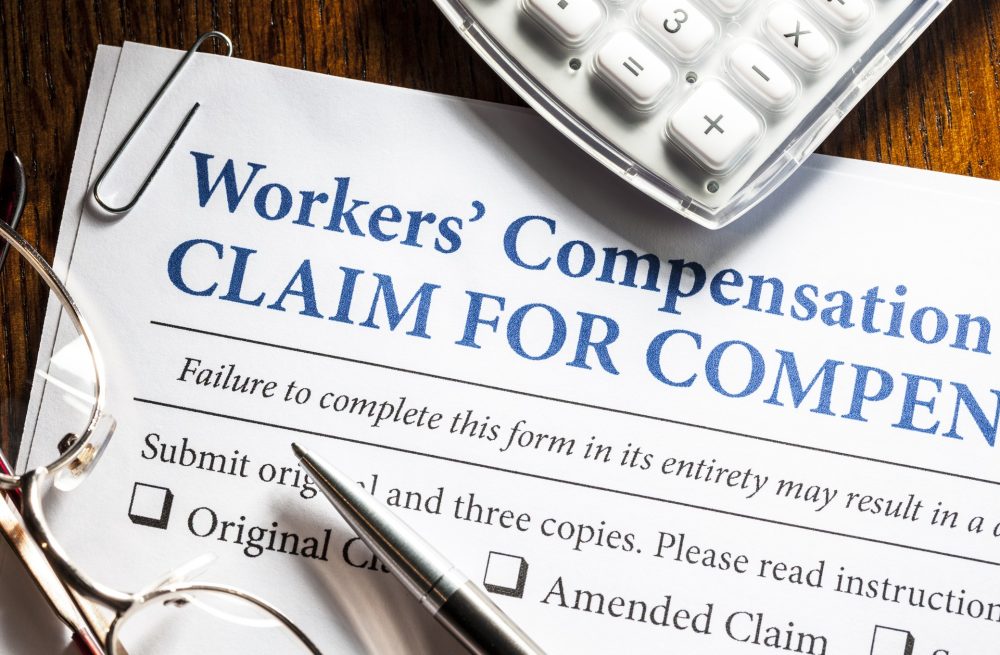Let’s look at what is protected under New Jersey worker’s compensation law and the landmark case of Keim v. Above All Termite & Pest Control. The last thing anyone wants to worry about at work is getting hurt. People just want to do their job, get through the day, and head home. But sometimes injuries occur in the workplace. When this happens, employees are typically eligible for worker’s compensation. However, there are cases in which the details of how or where someone was injured could make a worker’s eligibility for recovery unclear. The New Jersey Supreme Court resolved one of these cases recently in Keim v. Above All Termite & Pest Control.
Background
Henry Keim worked as a technician for Above All Termite & Pest Control. Rather than work at a single location, Keim was an off-premises employee who performed pest control services at residential and commercial properties. Each morning, he received an assignment from Above All’s owner via a company iPad. The assignment specified where Keim would be working that day, and what services were needed.
In addition to the iPad, Keim was given a company vehicle. Rather than commute from home to a central location, then disburse to separate job sites, Above All’s policy was for technicians to take their company vehicle home each night, and directly to and from each job site the next day. The only time technicians like Keim needed to report to Above All’s centralized location, or “shop” was when they needed to replenish supplies and chemicals in their vehicle. Technicians would stop in the morning or in between jobs to replenish, then continue to the next site. Keim testified that he needed to make two or three stops for supplies each week.
The Injury
One morning in July of 2020, as Keim determined that he needed to replenish the supplies in his truck before going to a jobsite. On the way to the shop, he was involved in a serious car accident and sustained substantial injuries. Keim lost consciousness as his head struck the interior of his vehicle. About two months after the accident, Keim discovered that he sustained bilateral subdural hematomas – which required surgery and follow-up treatment.
Keim Brings a New Jersey Worker’s Compensation Case
Keim filed a worker’s compensation claim, but Above All’s Insurance carrier denied the initial worker’s compensation petition, while Above All itself moved to dismiss the petition entirely. At a court hearing, the Judge dismissed the Keim’s case, concluding that Keim was merely commuting to work rather than actually working at the time of the accident.
The appellate division reversed, holding that the Keim sustained his injuries while in the course of employment because he was operating an employee authorized vehicle and was picking up supplies as directed by his employer. After the appellate court reinstated Keim’s petition for compensation, Above All appealed to the New Jersey Supreme Court.
NJ Supreme Court
Above All argued that Keim was simply commuting to work when he sustained his injuries and Keim’s injuries were therefore not compensable under the New Jersey Worker’s Compensation Act. Keim argued that he actually was in the course of his employment at the time of the accident because he driving a company vehicle and performing a task specifically authorized and directed by his employer. Essentially, Keim argued that activities at the time of the accident were not personal in nature, but entirely related to his employment.
In review of New Jersey Worker’s Compensation Statute, the Supreme Court concluded that there are four rules that govern circumstances in which an employee is considered “in the course of employment” and therefore eligible for compensation.
First is the premises rule, which allows employees to be compensated for injuries sustained on the employer’s premises or on any property within the control of the employer.
Next is the special mission rule, which allows for compensation when employees are required to be away from the conventional place of employment while still engaged in work-related duties.
Third, the court noted the paid travel time rule, under which an employee is deemed in the course of their employment when they are paid for time spent traveling to or from a work location.
The fourth rule is called the authorized vehicle rule, which provides that an employee’s injuries are compensable when an employee uses an employer authorized vehicle for business authorized by the employer. Keim argued that the authorized vehicle rule permitted him to recover in this case.
The Supreme Court agreed. The court decided that at the time of the accident, Keim was not merely commuting to work, but rather, driving to the shop to obtain work supplies as he was authorized to do by his employer. Additionally, because the court concluded that Keim’s injuries were compensable under the authorized vehicle rule, it declined to analyze whether the other three rules discussed above were applicable. So, the paid travel time or special mission rule may have allowed Keim to recover as well, but a finding that the authorized vehicle rule permitted recovery was enough in this case.
Conclusion
The Supreme Court’s opinion in this case presents a good discussion of the different scenarios which may or may not permit an employee to petition for worker’s compensation benefits in New Jersey. If you have any further questions about New Jersey worker’s compensation, please contact Ward, Shindle & Hall.

